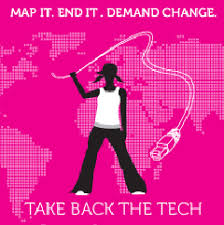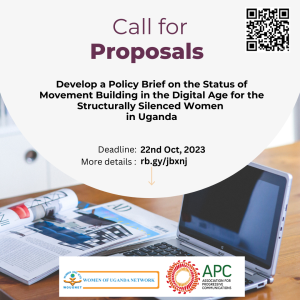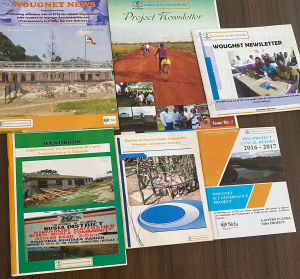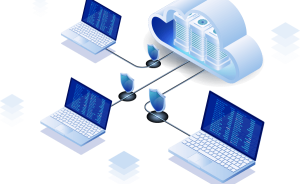Recently, a team of researchers, myself included made a journey to Kayunga town located in Kayunga district, central Uganda among other select sample sites. The purpose for our visit was to investigate the extent of tech-related violence among select groups who participated in our focus group discussions (FGDs) which are a major part of research funded under a small research grant scheme by the Association for Progressive Communications (APC) on a project titled: “Investigating tech-related violence against women in peri-urban areas of Uganda.” The major objective of the research is to understand the extent and magnitude of tech-related violence against women and to identify support mechanisms for redress and justice.
A report published by APC titled “End violence: women’s rights and safety online”, points out that technology-related violence includes acts or behaviors that cause harm or suffering, both mental and physical, and that this is increasingly becoming part of women’s experience of violence as well as part of their online interactions. The report further points out that Technology related violence is a form of gender-based violence and although not often highlighted as such, falls within the description of violence against women as defined by the United Nations Declaration on the Elimination of violence against women (DEVAW)
According to the center for research and education on violence against women and children in Canada, technology is used to perpetrate other forms of violence including; sexual harassment, stalking and intimate partner violence to name a few. Technology-related violence takes different forms and like most forms of gender-based violence, it mostly affects women and is mostly perpetrated by men.
On a closer look at the situation at home, Uganda has no clear statistics on online GBV, however, what we have observed over a period of time and more recently as we carry out research on tech-related violence and particularly Gender-Based Violence (GBV) online is that – it is on the rise and most victims and perpetrators are not aware that it is a form of violence. In fact, in most of the communities we have visited besides Kayunga, we have found that most perpetrators are not aware that they are perpetrating and the truth is the same for victims of online GBV – who do not know that they are victims.
In what was also in part awareness-raising sessions, we shared in our FGDs what may consist of online/ tech-related violence, some of these included; cyber stalking, bullying, sexual harassment, trolling, threats to one’s life, revenge pornography and etc. The general reaction to these revelations was mainly on whether there is a law that can protect victims experiencing any of the named online crimes.
Existing laws, policies, and initiatives to end GBV like the National policy on eliminating GBV in Uganda, do not clearly bring out tech-related violence as a serious form of GBV. They do not highlight the potential for online violence or tech-related violence to limit and undermine the enjoyment of one’s online and offline rights including; freedom of association, the right to safe environments, freedom of expression which consists of a contribution to content development and relevant online discussion, among other human rights.
While laws like the Data protection and privacy Bill, Anti-pornography Act, Computer misuse Act, and Penal Code Act are designed to protect the rights of citizens like all laws, they are generic and yet limiting in terms of scope of environment/ forums that citizens may choose to exercise their freedoms; who they intend to protect and the extent some of these rights should be protected. They also do not have room or provisions for unmentioned or yet to be known human rights violations in line with the rights that they are meant to protect. In fact, for those that are designed to protect the right to access to information, protection of data and privacy, freedom of expression, and any other rights aligned to the afore-mentioned, there is clearly a gap in terms of provisions that are gender-specific, sensitive and that are specific to protecting other vulnerable groups like children and the elderly. In line with online GBV, there are no clear provisions on what it consists of and how perpetrators may be punished. Furthermore, on whether existing provisions apply to crimes that may arise during the tenure or the period before the due date for revision or review of a given law, policy, action plan, strategy or initiative.
Regional Human Rights initiatives like the Declaration of Principles on Freedom of Expression in Africa (also the Banjul declaration, 2002) and the African Declaration on Internet Rights and Freedoms (specifically Application of Principles on Marginalized groups and groups at risk; and Gender equality) have not yet been as widely endorsed or even adopted by most governments on the continent, Uganda included. If adopted and or localized, such initiatives could save governments enormous costs that would result from complications brought about by crimes like online gender-based violence in the future.
There is clearly a need to take advantage of the internet and to exploit the opportunities it presents but also to guard against its potential to be used as a platform that can limit, deny and demean the rights of others. A strong recommendation to consider as we strive to abolish gender-based violence and accomplish the attainment of online safety to protect the right to freedom of expression among other rights can start with extensive consultation and development of legal guides or frameworks that cater for all eventualities and that are specific to addressing the needs of those that are more likely to be targets of online gender-based violence or tech-related violence among other online crimes that violate one’s human rights.
Article by Susan H. Atim
t: @wougnet/ @hatimsusan






